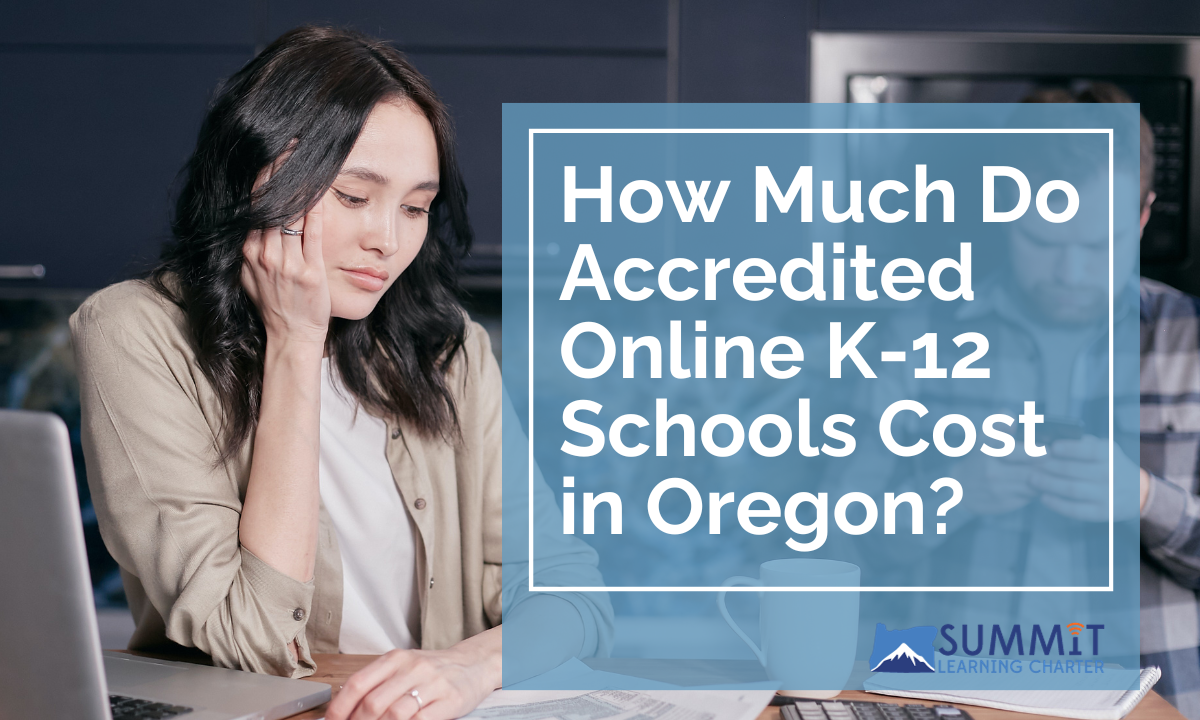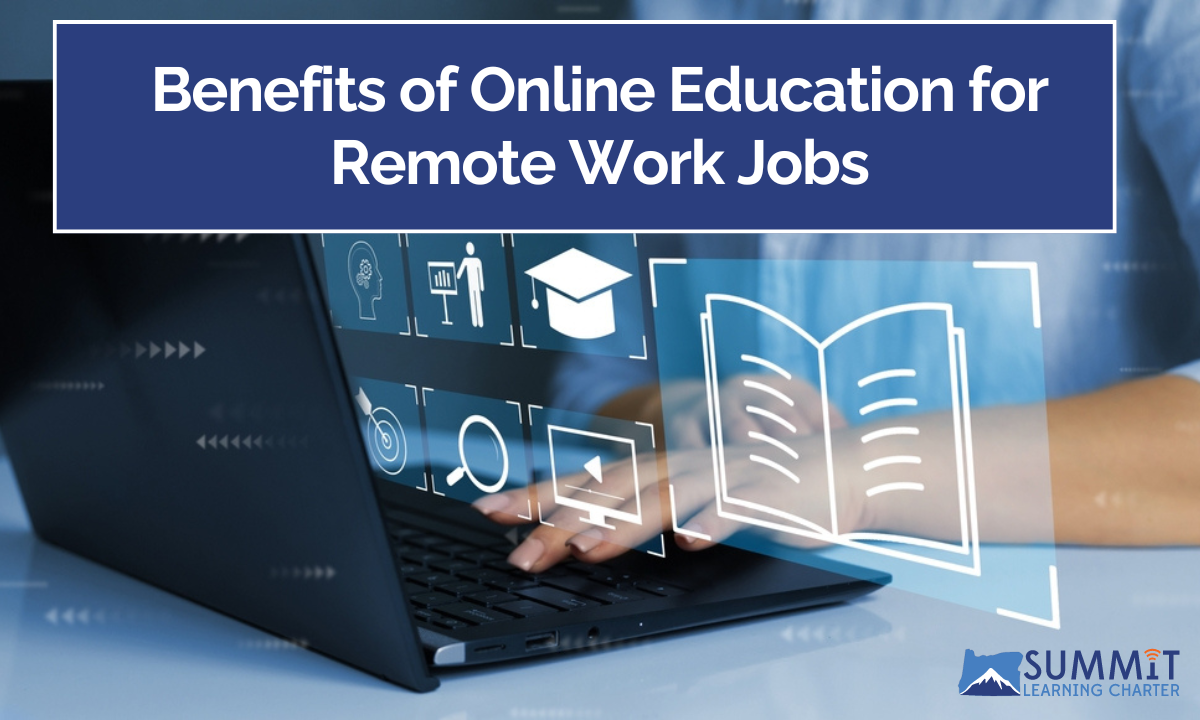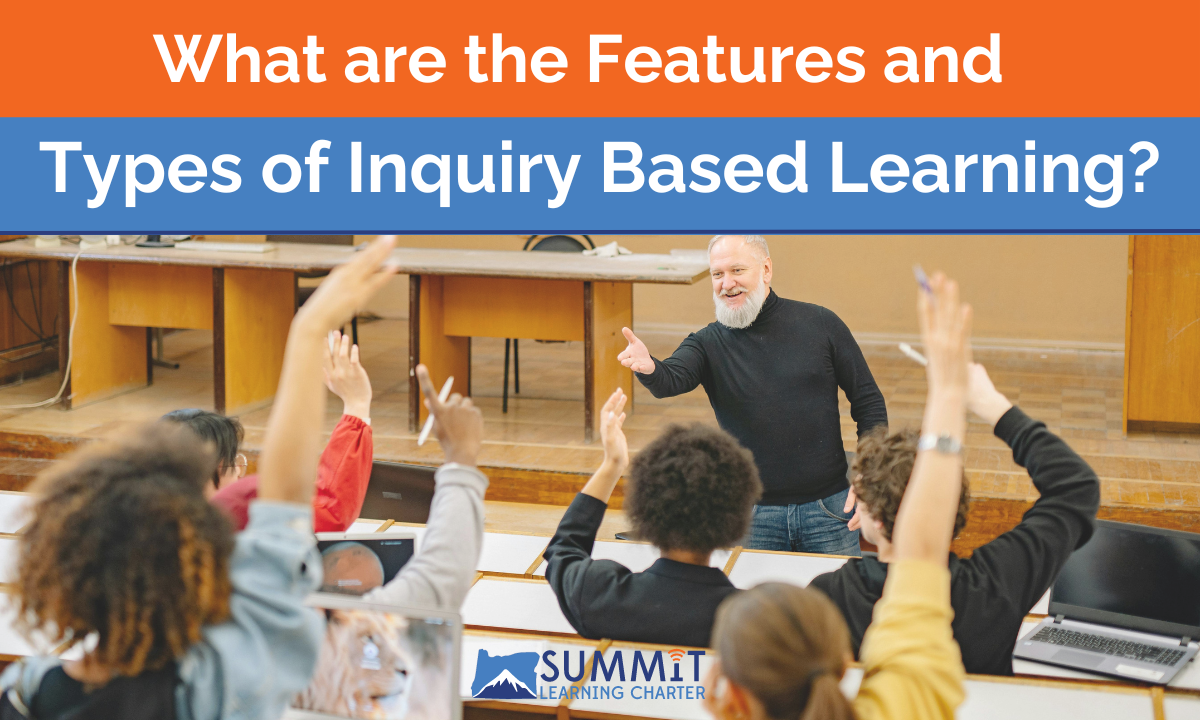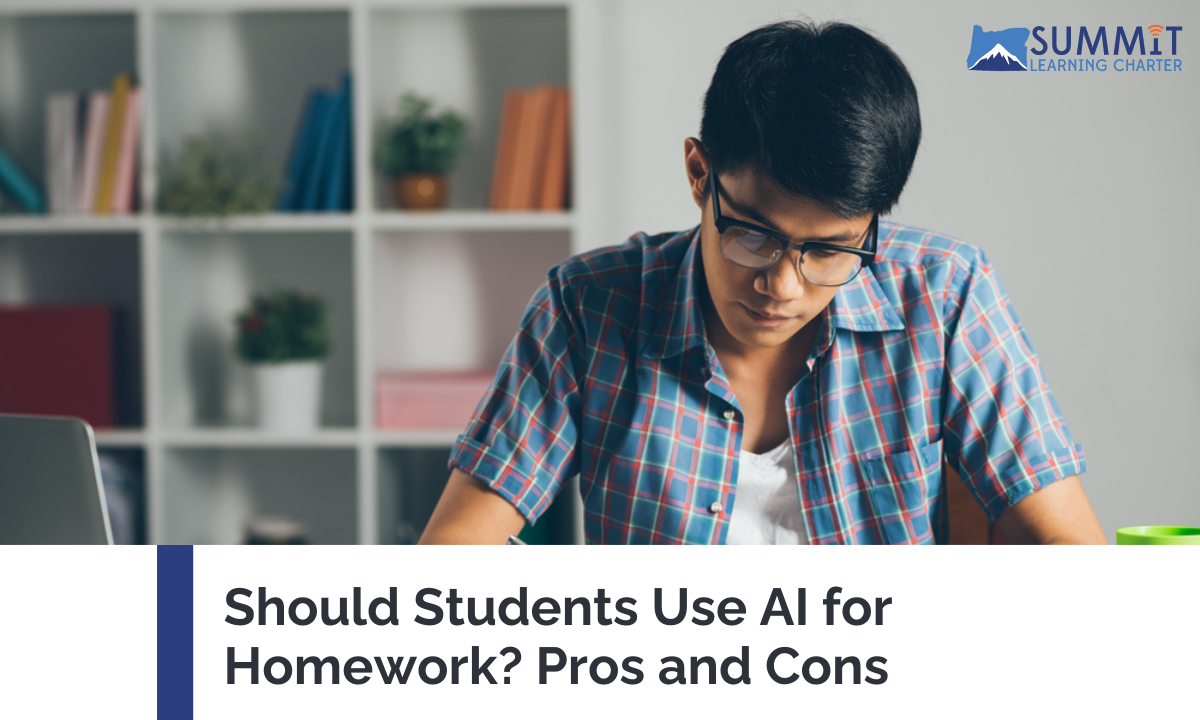
How Much Do Accredited Online K-12 Schools Cost in Oregon?
An increasing number of students and families are making the switch to online learning, and it’s not hard to see why. There are some significant advantages to virtual and blended models of education, including freedom from peer-pressure and bullying, flexible scheduling and learning options, opportunities for involvement from support systems and mentors, and the integration of technology.
But how much is K-12 online school? Is it expensive? Are there any tuition-free online schools that are accredited? What resources are available to help with costs?
In this article, we’re breaking down the direct and indirect costs associated with online schooling in Oregon. We’ll discuss different types of online schools and their tuition costs, tuition-free online schools, potential hidden costs, and how you can afford your student’s online education.
How Much Is Online Elementary, Middle, and High School?

Contrary to common expectations, many accredited online schools are publicly funded and completely tuition-free. While private online institutions generally require substantial annual tuition and fees, just like in-person private schools, there are public online schools that are completely free to attend.
Summit Learning Charter, for example, is a tuition-free public charter school that’s publicly funded by the Oregon Department of Education. Therefore, when you enroll your elementary, middle, or high-school student at SLC, you can expect to pay no tuition, just like if they were enrolled at their local in-person public school.
Some online public schools in Oregon, like SLC, also allow students to take college courses as part of their high-school graduation requirements. Summit’s Early-College Program allows students to take completely FREE college classes and earn college credits while they’re continuing to work toward getting their high-school diplomas.
Are There Other Hidden Costs To Consider?
Even if you choose to enroll your student in a tuition-free online school, there are some additional non-tuition costs to consider. Depending on the specific institution, additional expenses may include:
- Textbooks and other supplemental materials
- A computer as well as any necessary accessories and peripherals
- A reliable internet connection
- A desk
- A lamp
- School supplies such as notebooks, pens, pencils, a calculator, etc.
At SLC, we do everything we can to ensure students have everything they need to succeed without excessive cost. Whenever a student enrolls in one of our tuition-free programs, we provide a laptop and money to purchase books, course materials, and access to online tools. The only direct cost to SLC families is the need to provide an internet connection.
How To Save for Online Education?

Depending on the type of online school you choose, you may not need to save up additional funds at all. In fact, attending a tuition-free public school online is often more cost-effective than attending a traditional in-person public school.
That’s because making the switch to online learning can save families money and time by eliminating the need for daily commuting. It also allows students more flexibility in their schedules for other responsibilities and opportunities.
But if you choose to enroll your student at a private online school, decide to switch to homeschooling, or pursue another alternative to a traditional school, you may need to save up in order to afford the additional cost. Here are some possible ways to save:
- Contribute to a 529 plan, but be aware of the pros and cons of using the funds for K-12 education.
- Save up money for school expenses in a high-yield savings account, which allows you to take advantage of higher interest rates than traditional banks provide.
- If your student is a teenager and really wants to attend a particular school, consider suggesting a summer job so they can help pay for expenses.
How To Decide on the Right School Option for Your Student
We live in a world that is more connected than ever before. With virtually endless knowledge and opportunities at our fingertips, many families are looking for new ways to educate their children and prepare them for an ever-changing world. But each child, family, and situation is unique. That’s why it’s a good idea to look into available options to discover which type of schooling is right for your student’s unique needs.
First, What Is an Accredited School?
An accredited school is an educational institution that has been evaluated and authorized by an official accreditation agency as recognized by the U.S. Department of Education. An accreditation is a formal acknowledgement that a school is meeting all national and regional educational standards.
Traditional Schools
Traditional schools are institutions with a physical building where students attend daily classes, turn in homework assignments, and interact in person with teachers and other students. While many students find traditional schooling to be effective and conducive to learning, many others struggle with the one-size-fits all approach. These options also significantly limit schedule flexibility and can potentially lead to issues such as bullying and peer pressure.
Traditional public schools are taxpayer-funded and tuition-free. You also have the option to choose a private school, which may offer more specialized education but usually comes with a financial investment via regular tuition payments and fees.
Related: Online vs. Traditional High School Pros and Cons
Online Schools

Online schools are rapidly growing in popularity and are more accessible than ever before. With virtual education, students can attend lectures, complete coursework, and meet with teachers completely online. SLC and many other virtual schools also offer blended learning options, which involve a mix of online and in-person classes.
Online academies offer a number of benefits, including:
- Flexible schedules and self-paced learning
- The ability to learn from anywhere
- More diverse course catalogs
- The chance to learn valuable skills such as time management and self-motivation
- A personalized approach rather than one-size-fits-all teaching methods
While online learning is a wonderful option for students from all walks of life, some will struggle with the self-paced element of this option. It also requires more active involvement from Learning Coaches compared to traditional schools. Learn the top 8 qualities to look for when choosing an online high school so your student can succeed.
Homeschooling
Homeschooling usually involves a parent or guardian teaching their child at home rather than enrolling them in an official educational institution. Many homeschool communities also create co-ops, in which multiple families collaborate to provide education to their students. Homeschooling can be a great option for students who struggle in more traditional environments.
Keep in mind that homeschooling can be expensive, as families will need to purchase all necessary materials and educational tools themselves. It also requires extra effort to ensure your student is able to socialize with their peers. Most students will need to pursue a high school diploma or equivalent certification such as an Oregon General Education Equivalency (GED) in order to access higher education and career opportunities.
Are You Interested in Pursuing the Benefits of Online Education?
Ensuring your student has the opportunity to get a quality education doesn’t have to mean paying expensive tuition and fees. Summit Learning Charter is a fully accredited online K-12 public school in Oregon with highly qualified teachers, free tuition, a diverse course catalog, and comprehensive curricula. If you believe that online education is right for your student, we can offer you the support, resources, and tools you need to help them achieve long-term academic success.
Transferring to online school during the middle of the school year is also possible. Learn the 5 easy steps here.
Learn more about academics at SLC, take a look at our frequently asked questions, and contact us to ask questions and discover if SLC is right for you!
Summit Learning Charter is accredited by COGNIA, and recently renewed in 2022. The average score (CIN 5 Year IEQ Range) for other institutions in the network range from 278.34 – 283.33. Summit Learning Charter’s score was 335.15, which is way higher than average!



